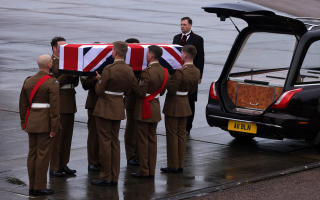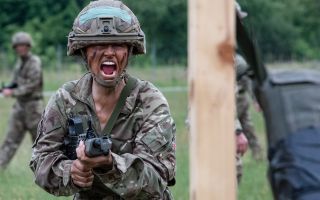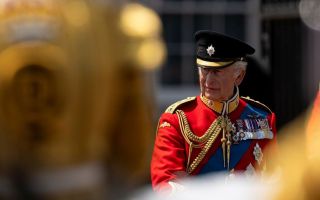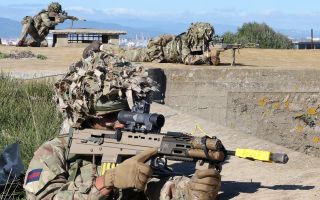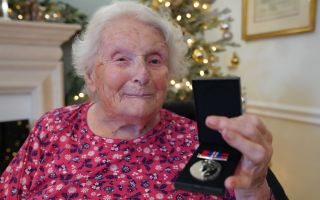Exclusive: Gen Z do want to fight for their country, but it's a case of computer says 'no'
Lewis Jackson's family has served in the Coldstream Guards since the 18th century. His great-great-great-grandfather, Lance Corporal Richard Jackson, was even awarded a medal for conspicuous gallantry during the First World War.
Lewis planned to follow in their footsteps. He told BFBS Forces News that he loves his country and wants to serve.
However, his Army application has been rejected several times – thanks to an operation he had when he was three years old.
Lewis previously had an operation to correct his vision after he was born with cataracts, which runs in his family.
Despite this correction, he received a letter telling him he was permanently medically unfit to join the Army.
Lewis got in touch after watching our report of another young person who was continually rejected. He's frustrated that his generation is struggling to get into the Armed Forces.
"I've seen in the news that a lot of young people from Gen Z, they're not willing to fight for their country," he told BFBS Forces News. "I think it's completely the opposite case.
"I think they're not being given the chance. And I think it's not being reported on until I saw you guys talking about that."
Computer says 'no'
Lewis is very critical of the computer portal system that governs the application process.
I asked him if he'd ever spoken to a human being throughout this process. He told me he never had.
"I still haven't spoken to anyone at Capita or any of these systems, any medical person… I've tried to ring a number, no one answers. I've tried certain email addresses, no one replies... it's just this portal system," he explained.
The bottom line for him is this: "I would just like to fight for my country, but I failed before I've had the chance to fail."
Over the last two years, Lewis says he's appealed four or five times. He's also spent £150 on eye tests that were required to prove the strength of his vision.
"I don't want to stop now because I can't rationally see any reason why I shouldn't be able to join," he said.
"It's quite hard when I know that I can see and I know that I can see well, and I have no struggles in my day-to-day life.
"When someone who [you've] never met is telling you 'you can't see, you can't join and do something you've always wanted to do' – it's quite tricky, because I don't understand."
The language of rejection
Lewis shared with us the message he received on the online portal run by Capita, explaining why he had been rejected.
Our Medical Review Team has conducted an in-depth review of your appeal, and we are sorry to inform you that you will not be able to continue with your Army application.
We have carefully examined all the available medical information about you and found that you don't meet the Army's current medical standards. The reason for this decision was:
Your history of bilateral intraocular lens (IOL) replacement. We appreciate your aided vision is within entry standards and that you previously attended Army cadets. However, under the Army's medical entry rules (JSP 950 Part 1 Lft 6-7-7, Annex A) you are unfortunately considered to be permanently medically unfit to serve in the Army.
Lewis says the recruitment sergeant supporting his application has contacted Capita, but has had no response.
During our chat, I asked Lewis: 'If Defence Secretary John Healey was sat at your kitchen table right now, what would you say to him?'
"Well, I wouldn't be offering him a cup of tea, that's for sure," Lewis replied.
"I'd be saying 'I think you've got it wrong... I'm so proud to be British, I'd love to give something back'.
"The amount of funding that is going to defence is brilliant… but I don't think it's finding its way down to the recruitment sector.
"Over the last two years, I've been dealing with the same portal and the same system. Nothing's really changing."
Official responses
We put the details of Lewis' case to the MOD and Capita and asked them for a response.
An MOD spokesperson said: "While we cannot comment on individual cases, we are committed to recruiting and retaining the best people possible.
"Every application is considered on a case-by-case basis by specialist clinicians, who assess the severity of any health condition and the need for future treatment.
"The process balances allowing people with certain health conditions to join the Armed Forces, while maintaining a force that is fully deployable at short notice."
BFBS Forces News understands that there is an executive waiver process in place, where the employing service may, exceptionally, recruit someone who does not meet the existing entry standards.
This may include individuals with unique specialist skills. It's determined on a case-by-case basis.


